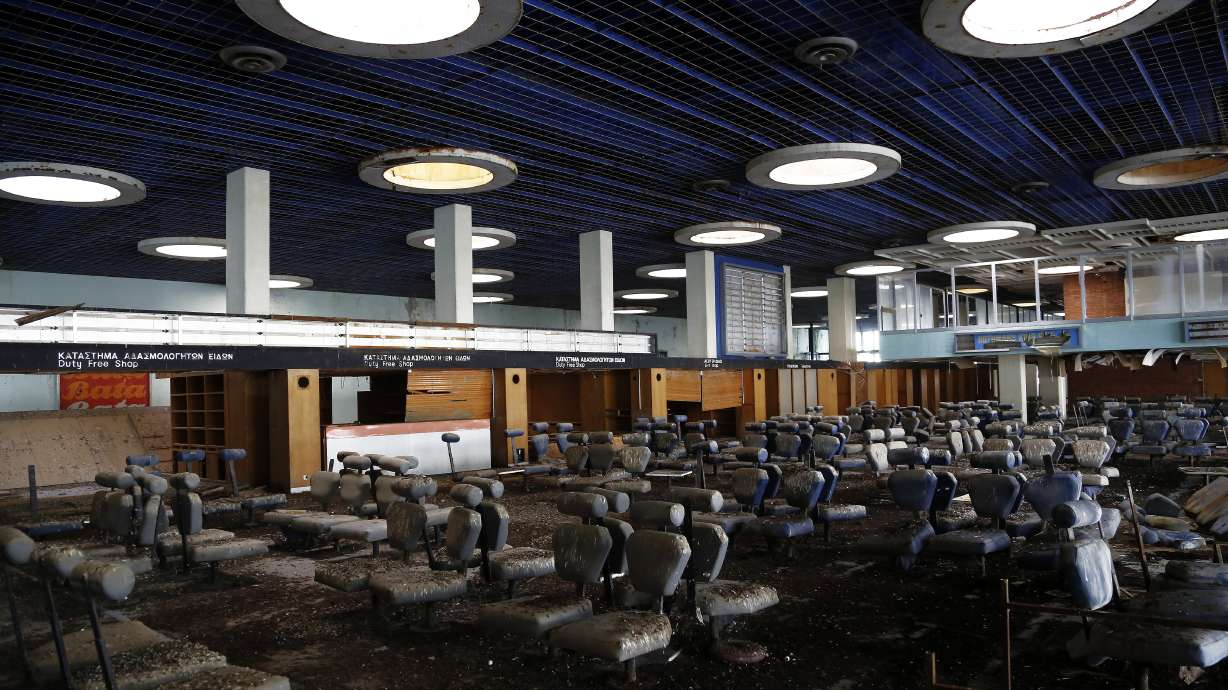Estimated read time: 3-4 minutes
This archived news story is available only for your personal, non-commercial use. Information in the story may be outdated or superseded by additional information. Reading or replaying the story in its archived form does not constitute a republication of the story.
NICOSIA, Cyprus (AP) — Capt. Adamos Marneros gazed with foreboding at the dots on the radar screen of his passenger jet as it prepared for landing on Cyprus.
It was before dawn on July 20, 1974, and the view of from his cockpit confirmed his suspicions: Turkish warships were approaching the Mediterranean island in an invasion triggered by a coup by Greek Cypriots aiming to unite with Greece.
"I couldn't allow myself to be frightened because I would be unable to do my job and land the plane safely," Marneros told The Associated Press.
Marneros was then a 27-year-old pilot with national carrier Cyprus Airways who had received his captain's stripes only two months earlier, the first Cypriot to win the post in the company's history.
Flight 317, taking off from London Heathrow with a brief stopover in Rome, would go down as the last to land at the country's transportation jewel, Nicosia airport, before it was shut down barely six years after its completion. The invasion that Marneros witnessed from the skies cleaved the island in two along ethnic lines with breakaway Turkish Cypriots in the north and internationally recognized Greek Cypriots in the south.
Once an emblem of the young republic's growing confidence just 14 years after independence from British colonial rule, the airport overnight became a symbol of a future hijacked by unresolved conflict.
Aboard the aircraft were only 10 passengers made up of two families — a Greek one and a Turkish Cypriot one.
Marneros says he had deep misgivings about making the flight to Nicosia. After a sleepless night in his London hotel room watching TV reports of the buildup to invasion, he pleaded on three separate occasions with the airline's boss to cancel the flight. The reply was unequivocal every time: You must bring the aircraft back to Nicosia.
Approaching the island in the darkness, Marneros got permission from Nicosia air traffic control to fly around the island at 14,000 feet (4,300 meters) for a look at what was happening. Below him the hulking silhouettes of warships were creeping toward Cypriot shores. His warnings to the airport control tower were met with what he said were half-hearted attempts to ease his concerns.
The Trident aircraft touched down just before daybreak, and Marneros was last to leave the airport in the ensuing evacuation. As he left in his car, Marneros caught sight of Turkish paratroopers just north of the airport drifting down from the skies.
"I could see the paratroopers' eyeballs," he said, "and the guns strapped to their gear."
His aircraft, one of the airline's four Tridents, was later wheeled to the head of the runway in a bid to prevent Turkish planes for landing. It was promptly blown to bits by Turkish bombs.
The rusting hulk of another Cyprus Airways Trident now sits on the airport's apron, gutted and stripped of everything from its flight deck and fuselage. Parts of its engines were used to allow a pair of other Tridents to eventually fly to the U.K.
The airport was the scene of intense fighting during the invasion as Turkish forces tried to seize it and effectively encircle the capital. Taking heavy losses, the attackers failed amid fierce resistance, prompting United Nations peacekeepers to take it over and declare it a U.N. protected zone.
The airport's grounds remain the headquarters of the U.N. peacekeeping force on the island and serve as the venue for U.N.-mediated reunification talks. Herders can sometimes be seen moving their goats across the airport tarmac, while a golf course used by U.N. staffers lies a few hundred meters (yards) from the once state-of-the-art terminal.
Past attempts to reopen the airport to help foster trust between the two communities have failed.
Copyright © The Associated Press. All rights reserved. This material may not be published, broadcast, rewritten or redistributed.








